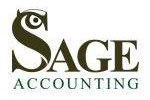Latest advisory fuel rates for company cars
The amount that employers can reimburse staff for business travel in company cars changes from 1 March 2025. What are the new rates?

Advisory fuel rates for company cars are updated by HMRC on a quarterly basis due to fluctuations in fuel prices. The rates determine the amount that can be paid to an employee using a company car for business mileage, or where an employee has to reimburse their employer for private journeys. Providing HMRC’s rates are used, there are no income tax consequences for the employee.
HMRC has now published the rates applicable from 1 March 2025. The rates per mile will be:
|
Engine size |
Petrol |
LPG |
|
1,400cc or less |
12p |
11p |
|
1,401cc to 2,000cc |
15p |
13p |
|
Over 2,000cc |
23p |
21p |
|
Engine size |
Diesel |
|
1,600cc or less |
12p |
|
1,601cc to 2,000cc |
13p |
|
Over 2,000cc |
17p |
The rate for fully electric vehicles will stay consistent at 7p per mile. Hybrid cars are treated as either petrol or diesel cars for the purposes of advisory fuel rates.
These rates apply from 1 March 2025, and although it is possible to use the previous rates for another month, some of the new rates are slightly higher so should be used from 1 March.
Related Topics
-
Directors’ fees - can you escape PAYE?
You’ve been asked to join the board of a company in a purely advisory role. For tax and NI efficiency you want your fees to be paid to your own company. Does this arrangement fall foul of HMRC’s off-payroll rules?
-
P46 (car) deadline
-
Filing deadline for self-assessment tax returns

 This website uses both its own and third-party cookies to analyze our services and navigation on our website in order to improve its contents (analytical purposes: measure visits and sources of web traffic). The legal basis is the consent of the user, except in the case of basic cookies, which are essential to navigate this website.
This website uses both its own and third-party cookies to analyze our services and navigation on our website in order to improve its contents (analytical purposes: measure visits and sources of web traffic). The legal basis is the consent of the user, except in the case of basic cookies, which are essential to navigate this website.